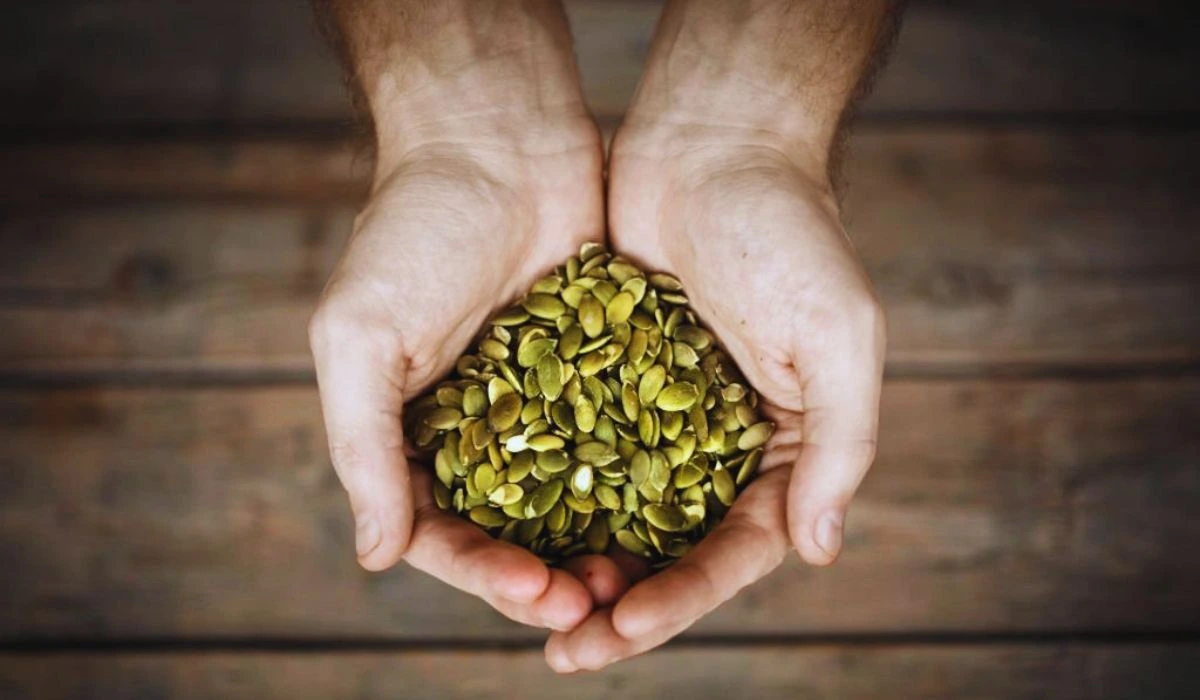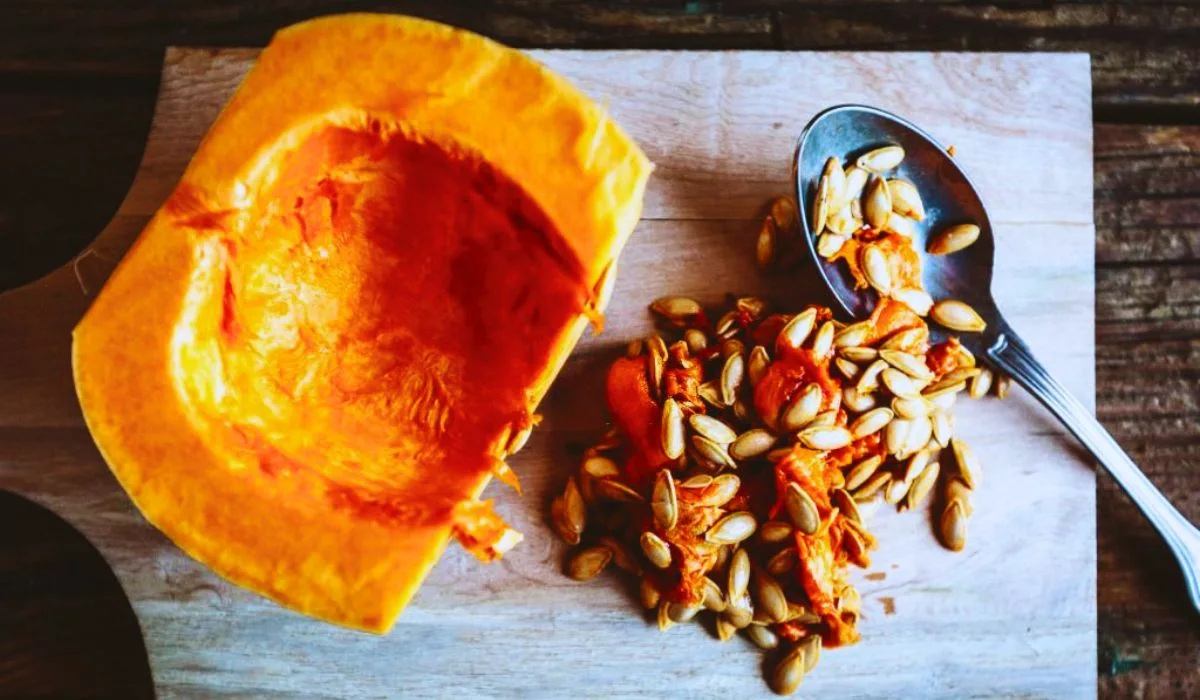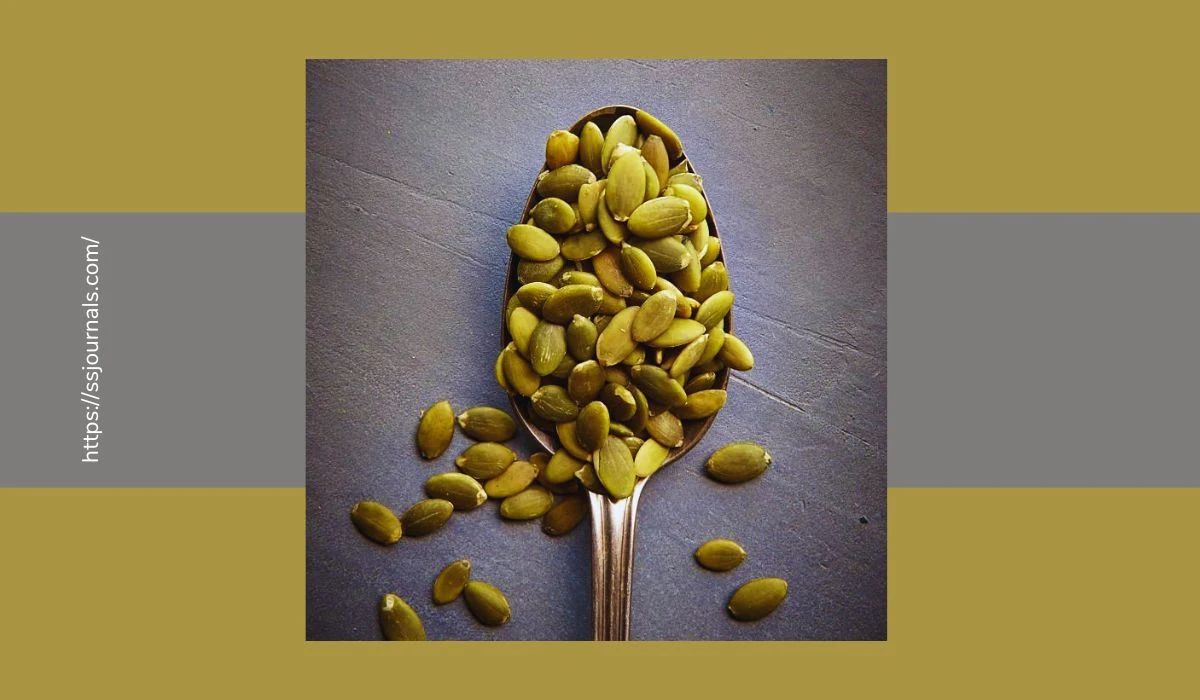Pumpkin seeds, also known as pepitas, are the flat, dark green seeds found inside pumpkins. They are a popular snack food around the world and have been gaining interest for their impressive nutritional profile and health benefits.
While pumpkin seeds are possibly best known for their association with Halloween carvings, they are worth incorporating into your diet all year round. Read on to learn more about pumpkin seeds, their nutrition, and how you can enjoy their health perks.
Pumpkin Seeds And Their Nutritional Value

Pumpkin seeds are loaded with important nutrients and minerals that make them a healthy addition to any diet. A 1-ounce (28-gram) serving contains:
- Protein – 5 grams. Pumpkin seeds provide protein that contains amino acids like tryptophan and glutamate, which are important for sleep and reducing stress.
- Fiber – 1.7 grams. The fiber in pumpkin seeds helps regulate digestion and promotes feelings of fullness.
- Iron – 2.5 mg. This mineral is vital for producing red blood cells and transporting oxygen throughout the body. The iron in pumpkin seeds comes in an easily absorbed form.
- Zinc – 2 mg. Zinc supports immune function and wound healing. It’s also important for DNA synthesis.
- Manganese – 0.5 mg. This trace mineral aids bone formation and metabolism. It also acts as an antioxidant in the body.
- Phosphorus – 132 mg. Phosphorus supports bone health and kidney function. It plays a role in cell repair and energy production.
- Magnesium – 92 mg. Magnesium is involved in over 300 enzyme reactions in the human body. It contributes to muscle and nerve function, blood glucose control, and protein synthesis.
- Copper – 0.5 mg. Copper assists with iron absorption. It also supports immune function, brain health, and metabolism.
Pumpkin seeds really pack a nutritious punch for their small size. They provide important nutrients that can boost your health in many ways.
Health Benefits Of Pumpkin Seeds
Research shows that incorporating pumpkin seeds into your diet may provide these science-backed health benefits:
- Improve heart health: The fiber, vitamins, and minerals in pumpkin seeds can support heart health. Their antioxidants improve blood flow and lower blood pressure. Pumpkin seeds may also lower bad LDL cholesterol.
- Reduce inflammation: The pumpkin seed oil contains phytosterols that may help reduce inflammation and underlying conditions like arthritis. The zinc in pumpkin seeds also decreases inflammation.
- Support prostate health: The nutrients in pumpkin seeds may prevent an enlarged prostate. Zinc may also reduce symptoms of benign prostatic hyperplasia (BPH).
- Promote restful sleep: Tryptophan, an amino acid found in pumpkin seeds, helps produce serotonin. Serotonin is a neurotransmitter that promotes relaxation and sleep.
- Improve insulin regulation: Animal and human studies link pumpkin seeds to better blood sugar control, insulin regulation, and reduced diabetes risk.
- Boost immunity: The zinc in pumpkin seeds strengthens immune function. Zinc deficiency can make you more prone to illness and infection.
- Enhance fertility: The antioxidants and minerals in pumpkin seeds may improve sperm quality and fertility in men.
- Increase milk supply: Pumpkin seeds’ nutrients like zinc, iron, and magnesium support lactation. Eating the seeds may help increase breast milk supply.
With all of these benefits, pumpkin seeds definitely deserve a regular spot in a healthy diet. Even just a handful provides important nutrients to support overall wellness.
How To Include Pumpkin Seeds In Your Diet?

There are many delicious and simple ways to eat pumpkin seeds:
- Snack on raw, roasted, or sprouted pumpkin seeds straight. You can season them with spices like paprika or cinnamon.
- Sprinkle roasted pumpkin seeds on salads for extra crunch and nutrition.
- Add pumpkin seeds to your hot or cold breakfast cereal for a boost of minerals, fiber, and protein.
- Mix pumpkin seeds into yogurt parfaits along with your favorite fruits and granola.
- Include pumpkin seeds in trail mixes with nuts, dried fruit, and dark chocolate.
- Use pumpkin seed butter as a spread on toast or stir it into smoothies.
- Blend pumpkin seeds into energy balls and healthy no-bake bars.
- Add pumpkin seeds to muffins, pancakes, breads, and other baked goods.
- Garnish finished dishes like oatmeal, soups, and pasta with pumpkin seeds.
- Create a savory roasted pumpkin seed snack by seasoning the seeds with tamari, garlic powder, and cayenne pepper before roasting.
Pumpkin seeds have a mild, nutty flavor that pairs well with both sweet and savory ingredients. Keep a bag of pumpkin seeds handy for easy snacking at home or on the go. Your body will thank you for the nutritional benefits.
Conclusion
Pumpkin seeds are packed with important nutrients like zinc, magnesium, and fiber that can benefit your health in many ways – from better heart health to decreased inflammation. Their antioxidants, amino acids, and minerals make pumpkin seeds a superfood worth incorporating into both sweet and savory recipes.
Adding just a serving a day provides valuable nutrients to support your overall well-being. Pumpkin seeds make for a versatile, nutritious snack that can be enjoyed anytime and anywhere.
FAQ
A: Yes, pumpkin seeds can support weight loss efforts in a few ways. Their protein and fiber promote feelings of fullness, which may decrease calorie intake. Pumpkin seeds are also low in calories for their volume. And their nutrients boost energy for workouts. Just be mindful of portion sizes.
A: Yes, raw pumpkin seeds are perfectly edible. Some people prefer to roast them to enhance the flavor and crunch. But raw pumpkin seeds still provide all the nutritional benefits.
A: Definitely. Pumpkin seeds are low-carb and high in healthy fats. About 75% of their calories come from fat. This makes them a great option for low-carb or ketogenic diets. Pumpkin seeds can help meet your macros on Keto.
A: Eating very high amounts of pumpkin seeds could cause gastrointestinal discomfort or diarrhea. But up to an ounce a day is considered safe for most people. As with any food, moderation is key.
A: Properly stored pumpkin seeds can last up to 6 months at room temperature. To maximize freshness and nutritional value, keep pumpkin seeds in an airtight container in a cool, dark place. You can also extend their shelf life by refrigerating or freezing pumpkin seeds.

